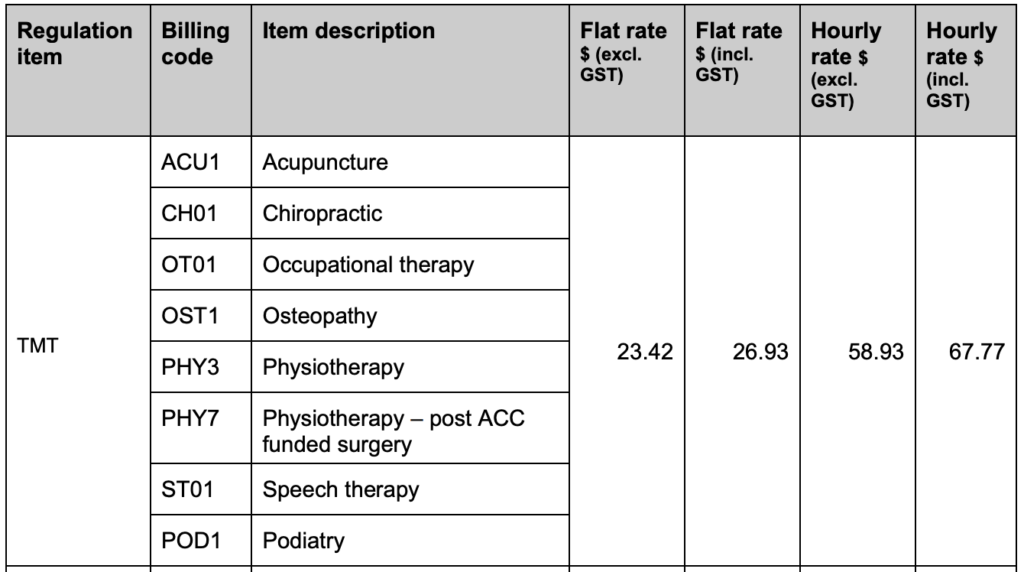I’ll try not to stay up on my soap box for too long here (the aim of this post is to give you a bit of insight into the health system you’ll be working in after all), but as I’ve learned more about ACC the more it’s fascinated me…
Here’s an example. If you’re running down the road in New Zealand and sprain your ankle on the gutter, you’ve had an accidental injury. You can go ahead and book your physio appointment, and ACC will pay for part of that appointment (it used to be the whole appointment but clinics have had to start adding a surcharge to make any money), and possibly even fund an ankle brace for you if you’ll need that to return to work in a timely fashion. If you’re off work for a bit they’ll even pay you a wage until you get back.
Buuuut, if you were running down the road in New Zealand and started to develop some lateral ankle pain as a result of overuse/training load error and there’s no clear “mechanism” you’re not considered to have had an accidental injury. Any treatment you access as part of your rehabilitation may need to be fully paid for by you, and if you take time off work and you’re self-employed you won’t have any income support.
Can you see where this is going?
While my work in musculoskeletal private practice has been incredibly rewarding as I get to manage lots of acute sprains and strains in some very active people (it’s seriously just the ideal patient caseload), I do also see lots of interesting injuries that objectively present like chronic/degenerative conditions but subjectively are being reported to me as acute accidents (a tricky ethical situation to be put in…).
What does ACC have to do with New Zealand’s public health system?
Right let’s get off that tangent. How does ACC fit in to the broader delivery of health care in New Zealand?
Hospitals still provide free public health care to those who need it regardless of whether the illness or injury is accidental.
Physiotherapists and podiatrists and occupational therapists and other professionals can still provide health care to anyone who needs it as first contact practitioners, but how you bill that person will depend on whether they have an ACC claim or not.
GP’s can see anyone for a consultation, but again if it is a condition covered by ACC this will only cover part of the appointment and the patient will usually pay an additional surcharge. Otherwise, they must pay the full cost of the appointment for normal medical stuff.
Do you have to pay for healthcare in New Zealand?
Yep, but there are a few services that are free/subsidised for Kiwi citizens (or Aussies who intend to reside here permanently and have been in the country for two or more years).
Hospital services are typically free (or rather, tax-payer funded), as are pharmaceutical items on the prescription subsidy scheme.
Ambulances are different however. Again ACC/accidental emergency transport is all covered. Non-injury and non-emergency transport by ambulance is $98 for locals and $800 for visitors. Ambulance insurance as we know it in Australia doesn’t really exist in NZ, but you can read my post here about reducing these costs by signing up as a member of St Johns.
What about private health insurance?
As I mentioned in this post on things to do upon arriving in New Zealand it’s not that common as the services provided by the Public Health System are generally very good.
But there are a few patients out there who take it up to avoid long waitlists and so their up-front fees to see a health professional will vary based on the cover they’ve taken out. Travel insurance will also cover heaps of stuff for those just on holiday.
Are there any Reciprocal Health Agreements in place?
Yes for Aussie and UK citizens. But it’s not all inclusive. Basically essential services for “immediately necessary medical treatment” are covered (including medication, hospital services and maternity services) but not ambulances (have I mentioned that enough times already? I’m sorry, I’m really not sure why I’m obsessed with continuously writing that fact…)
All temporary visitors to NZ are covered by ACC for accidental injuries.
What do I need to do to deliver my services as part of the ACC system?
If you’re in one of the below-listed professions, you’re can register as a treatment provider with ACC:
- acupuncturist
- audiologist
- chiropractor
- counsellor
- dentist
- medical laboratory technologist
- medical practitioner
- medical radiation technologist
- nurse
- occupational therapist
- optometrist
- osteopath
- podiatrist
- physiotherapist
- psychiatrist
- psychologist
- psychotherapist
- social worker
- speech therapists
To register you will need to:
- Be registered with the appropriate authority e.g. the Physiotherapy Board of New Zealand
(I explain that process here) - Hold a current Annual Practicing Certificate from that authority
- Complete the ACC24 “Register as a Health Provider” form (either online or paper copy)
- Note: if you’re just working for someone on a short-term basis as a locum there will be a different form for you to complete – your employer should provide this
- Choose whether you prefer payment on a time or patient-contigent basis (this will probably be determined by your employer, but current fees in the table below)

